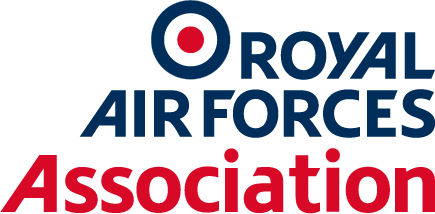“November and December are particularly hard months for me,” says Gerry, who served 14 years in the RAF. “At the end of November 2014, I lost my wife to cholangiocarcinoma and then in December I had to arrange the funeral.”
For Gerry and his wife, Carol, it had been another ordinary day in their 44-year marriage. When Carol felt a pain in her chest they both assumed it was a bruised rib caused by the exuberance of their new puppy. They decided to see the GP, who suggested it could be gallstones.
They set off for the hospital where Carol would undergo a scan – only for the doctors to spot a growth on her liver. When the test results came back “they told us she had stage four cholangiocarcinoma, a rare type of cancer in the bile duct that’s hard to detect, and that she’d be dead within about 3 months.”
Gerry said: “The hospital gave us options: does Carol want to stay here, does she want to go into care or would she like to go home? Whichever option was chosen, the end result would be the same.”
Carol went home and Gerry, a former electrical fitter in the RAF, began his round-the-clock care.
“We did get visits from two carers who would come and bath her and try make her feel more comfortable. We also had two nurses visit: the first would come in the afternoon to check her drugs and drips, and again last thing at night.
“The night nurse was a brilliant relief. They would come and take over from me and it would give me chance to get some sleep. There were times that they’d read with Carol too.
“Carol was a very private person and didn’t want other people to know just how ill she was.”
Carol didn’t make the doctor’s prediction of three months. After six weeks, Gerry watched his wife pass away at home as he held her hand for one last time. At a time when family togetherness and Christmas was all around him, Gerry was alone.
“During her illness, I’d reached out to St Catherine’s Hospice in Crawley. This is where Carol could have gone,” Gerry said. He was invited to a drop-in for those who have been bereaved. “We were able to help each other. We sat and talked.”
Just before Carol’s funeral, Gerry was talking with a close friend on the RAF Apprentices Association online group about Carol’s death. The friend asked if he could attend the funeral. Without hesitation Gerry said ‘yes’. As her coffin arrived, three RAF colleagues turned up and effectively formed a guard of honour. Gerry says that Carol would have been delighted that three of ‘Trenchard’s Brats’ honoured her passing: “RAF comradeship still exists all these years on… 60 years have passed and we’re still looking out for each other.”
Gerry’s neighbours also stepped in – and continue to do so. “When one neighbour found out that Carol had passed, he came round and we sat with a bottle of Scotch. I get a yearly invite for Christmas Dinner… and if I’m not up for it, they will plate it up and drop it round.”
While the whole situation was hard to process, Gerry has never been one to quit and has tried to tackle his problems head on. It is almost eight years since Carol’s death. “I still get bad days, but Carol would’ve wanted me to carry on the best I can. I still undertake my hobbies and try to live life as normally as I can. She would’ve expected me to.”
In March 2020, England was in national lockdown. Gerry had lost his beloved Basset Hound just weeks before. Gerry’s RAF training had provided some preparation for the COVID-19 pandemic. “I was stationed in Borneo for 12 months. There was a cholera outbreak in the nearby village so the whole camp went into lockdown. Three years later I was in the Gulf and we had a malaria outbreak in another village down the road.
“My military discipline has taught me to get on with it as I knew it would be over sooner or later. Besides, my remaining dog kept me company.” But he had little human contact except with other dog walkers in the village. And it was still hard to be alone, especially around wedding anniversaries, and even more so on the anniversaries of that terrible day in November 2014.
Meanwhile, the RAF Association was calling on RAF veterans to check on their welfare during the pandemic. Out of the blue, Gerry received one of more than 120,000 calls to members of the RAF community. As he spoke to the caller he took up the charity’s offer of a regular conversation.
Gerry was introduced to Lynn, his RAF Association Connections for Life volunteer. He says: “I didn’t know it [Connections for Life] existed. It came as a complete surprise. I’m quite lucky.”
After a couple of calls, Gerry and Lynn were discovering common ground. A keen writer who loves to compose short stories, he also had another creative ambition. “I always wanted to play a musical instrument. When I said this to Lynn she told me that she plays the piano”. With her friendly encouragement, Gerry started teaching himself to play the electronic keyboard.
“Whenever I learn a new piece, I play it over the phone to Lynn. If I am struggling for whatever reason, she is so supportive. She goes to her piano and talks – or plays – me through it.
“To date I’ve covered 50-odd bits of music. I mostly play classical music and have learnt some ABBA!” he laughs. Gerry still looks forward to his Friday evening calls. The phone rings and he gets an hour with Lynn – and her piano.
After two years of support from the RAF Association, “there came a point where I realised that we had been talking for so long over the phone and I really wanted to meet Lynn in person, so I asked ‘is there a way?’”. Before the pandemic, the Association’s volunteers made house calls or met up with their veterans in town.
Lynn had undertaken the necessary training to allow a visit and eventually there was an opportunity. “We decided to meet for lunch. Lynn is such a natural, easy person to talk to… and before I knew it, we’d spent two hours together.
“Connections for Life really does mean that. For me, it’s two people that have become friends. I was so pleased. It restored my faith in human nature.
“The Royal Air Forces Association is worthwhile joining. They offer so much support and I’m also lucky to have a branch nearby. Our bi-monthly lunches allow me to keep in contact with other veterans.”
Gerry is still being creative – and is writing music which he shares with Lynn over the phone. He says: “I’m currently composing my fourth piece. ‘Dusk Over a Village’ imagines the quietness of the river running through the village.” Lynn has suggested he covers the rest of the village in audio form too: “so I’ve also written ‘Daybreak’. It leads to a crescendo as the village wakes up.”
Asked if he’s able to incorporate any other instruments to his masterpieces, Gerry chuckles: “I did try the pan flute and the recorder – but I didn’t get on with them.”
Gerry signed up to the RAF as an Apprentice at RAF Halton, beginning his career as an Electrical Fitter. He did 14 years’ service “under the colours”. This included his two years of Boy’s service as an Apprentice, as he signed up at the age of 16. He worked on V Bombers during the Cold War, flew as a crewman on helicopters, and was deployed on tours across the Far East and the Persian Gulf.
Our work would not be possible without the generous support of our members and supporters - find out more about how you can give support here.
If you would like to find out more about how you can help support the work of the RAF Association click here.
Alternatively, click here to find out more about the ways in which the RAF Association can support you.




